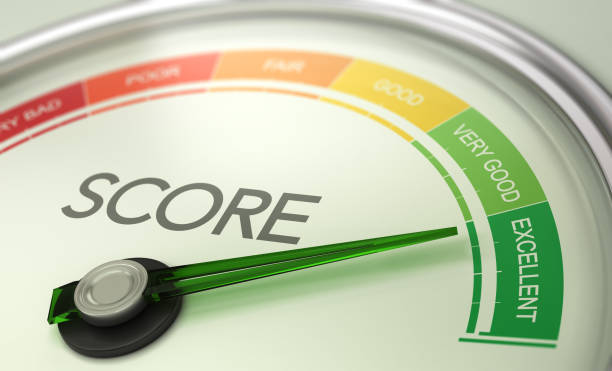Money Management

Personal Finance Tips to Improve Your Credit
Are you struggling with your personal finances and aren’t sure where to start? One of the first personal finance tips that I discuss with my clients is how to improve your credit. So one of the first questions we have to answer is what is credit and why is it so important?
What is a Credit Score?
When most people think of credit they think of their score. Third-party companies calculate your score by tracking all your financial obligations. They report on your general financial habits to creditors looking to lend you money.
In Canada, there are two major credit reporting agencies: TransUnion and Equifax. Aside from these companies, some apps and websites help you track your score. So how is that score determined?
5 Key Factors to a Credit Score
- Ability to pay on time (35%): Making your monthly payments on time is the largest factor determining your score. One missed payment can have a huge impact on your score. A lower score can make it more challenging to receive credit in the future
- Utilization (30%): Utilization is the amount of your available credit that you use regularly. Third-party companies measure this metric by taking the balance of your accounts and dividing them by the limits of each account. Keeping your total utilization to less than 30% of your limit has a positive impact on your score
- Length of time established (15%): The longer you have an account open and active, the higher your score will become. This shows your ability to maintain a good relationship with your creditors over a long period which reflects your continued good financial habits and lack of defaults
- Types of credit (10%): Having credit with financial institutions with higher lending standards tends to depict good financial habits. Resorting to higher-cost secondary and tertiary institutions indicates that you may be at a higher risk of default. Higher value types of credit improve your score over time
- Applying for new credit (10%): How often you apply for new credit can show your relative financial strength. If you regularly need to increase limits or take out extra credit, it can show a lack of savings and good financial habits. In turn, this can reduce your creditworthiness over time
Why does a credit score matter?
Credit is important for a large variety of reasons. Today, we see credit influencing rental applications and employment, not only loan and mortgage applications. So, having a higher score is one of my top personal finance tips for my clients. So how can you begin to improve your score?
 Steps to Improve Your Credit
Steps to Improve Your Credit
1. Open at least two accounts
If you don’t have any credit cards, lines of credit, car loans etc… Your first step is to ensure that you have two active forms of credit. Once you have active accounts, you need to start using them. The second part of this personal finance tip may sound counterintuitive, yet there are some things you need to know.
- If you don’t use your credit, it is as if you don’t have it
- If you don’t have sufficient credit you will likely be declined for larger obligations such as car loans and mortgages
For most people the easiest way to start improving their credit score with new accounts is the following:
- On each account, choose 2 payments per month, ideally 2 weeks apart for each payment (ie. car insurance on the 1st and a phone bill on the 15th)
- Set an automated payment for each obligation to come from your credit card
- 15 days after each payment, schedule an automatic payment from your chequing account to the credit card to pay off the exact amount owing
The process described above allows the balance on a credit card to report to the reporting agencies (Equifax & TransUnion). More importantly, they report that you made your minimum payment on time. This process allows you to improve your credit score over time.
If you’ve had credit problems in the past, such as a bankruptcy, collections item or a consumer proposal, it may be difficult to open new credit accounts. But, there are solutions such as a secured credit card which can allow you to open up an account by providing collateral.
2. Pay down existing debt
The next step toward improving your score is to pay down existing debt on your lines of credit and credit cards. You should aim to pay the highest interest rate form of debt off first and make minimum payments on all other forms. Once the highest interest rate form of debt is paid off, you move on to prioritizing the next highest. This debt reduction strategy is known as the avalanche method. You can learn more about this strategy here.
Once you’ve paid these forms of debt, keeping your balances below 30% of your limits will help improve your total score.
But with that said, the best personal finance tip I can give you is to ensure that you pay off the full balance of lines of credit and credit cards before the interest becomes due (normally after 21 days). Paying interest reduces the amount of money you have for savings, investments and day-to-day living expenses.
3. Increase your limits
So you might wonder why I would tell you to increase the limits on your existing forms of credit. If you are responsible with your borrowing habits and don’t rely on debt to finance your lifestyle, increasing your limits can help you improve your credit quickly.
Remember above when I said that credit utilization accounts for 30% of your score?
Well, think of it like this. If you owe $1,000 on a $2,000 limit credit card, your utilization is 50%. Now, paying off $500 reduces your utilization to 25%. But so does increasing your credit limit to $4,000. So, if you’re comfortable managing your finances, increasing your limit is a great personal finance tip to improve your credit.
 Top Personal Finance Tips for Improving Your Credit
Top Personal Finance Tips for Improving Your Credit
1. Plan your monthly budget and live within your means
Planning your budget and living within your means ensures that you don’t rely on debt to finance your lifestyle. By not relying on debt, you reduce the amount of debt payments required and therefore reduce the risk of missing a payment and impacting your score. Additionally, by budgeting, you reduce how much of your limits you need to use each month. A budget therefore further improves your credit by reducing utilization.
2. Create an emergency savings fund for unexpected expenses
Using your monthly budget, determine exactly how much money you need to live on each month before savings. These expenses will include things such as rent, mortgage, insurance, taxes, loan payments etc…
Once you know what your total monthly expenses are, set up a savings account with at least three months of living expenses set aside. This emergency fund ensures that should anything unexpected happen such as sudden illness or job loss, you will have a few months to get back on your feet rather than resorting to living on debt.
3. Review current financing with a professional
Reviewing your current financing for items such as car loans and mortgages can allow you to find ways to save money through lower interest rates. Since these interest rates fluctuate over time, you may not be aware that your current interest rate is higher than what is available currently.
Having a mortgage broker review your financing regularly can ensure you pay the lowest rate of interest on your mortgage. Lower interest rates decrease your payments and your risk of missing a payment, hurting your score.
Summary
At this point, you should understand the importance of improving your credit. The personal finance tips in this article will help begin the journey.
Yet, there is no substitute for working with a financial advisor and other professionals to help you reach your full financial potential. Speak with your friends and family for recommendations of people they’ve worked with in the past.
Next, begin to watch your credit. Apps such as Mogo allow you to check your score monthly and receive notifications if your credit is checked without your knowledge (such as someone trying to steal your identity). Keep track of your personal finances and your credit to ensure the brightest financial future for you and your family.
About the Author
The column's goal is to level up your financial knowledge and help you avoid common pitfalls and mistakes along the way. Although money management sometimes seems like an intricate task, it doesn't have to be. The advice here is common sense and simple to follow. The first step to a better financial future starts here, and it's never too late to begin. Adam Stapley is a Mortgage Broker with Pineapple Financial and author of the personal finance Newsfeed CanadianFinanceGuide.ca. He is intensely passionate about helping Canadians build wealth through the power of real estate. Many of the articles in this column come from Adam's experience assisting Canadians to understand and shape their personal finances. Pineapple Financial Lic #12830 CanadianFinanceGuide.ca adam@canadianfinanceguide.ca




